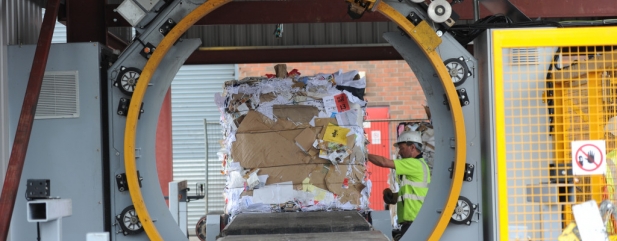Archived article
Please note that tax, investment, pension and ISA rules can change and the information and any views contained in this article may now be inaccurate.
Share pick for 2018: Biffa

We’re perplexed as to why waste management group Biffa (BIFF) trades on such a low valuation given the relatively defensive nature of its business and expectations for sustained profit growth.
Many investors at the moment seem happy to pay price to earnings multiples in excess of 20 for any company that is showing decent growth. It therefore seems bizarre that a company like Biffa is left behind, trading on a mere 13.5 times earnings.
Biffa operates in a structural growth market. An expanding population living longer and in a greater number of houses (and working in a greater number of offices or other business premises) all equates to a greater volume of waste being created.
Exacerbating that situation is increased legislation on the waste industry, such as pressure to reduce items being sent to landfill and ensure more items are recycled.
Biffa is well placed to capitalise on this situation as it collects, processes and recycles waste and it also produces energy, all from the UK.
Stockbroker Numis forecasts pre-tax profit rising by 30% in the current financial year to £58.7m, before reaching £64.9m the year after.
The biggest contributor to Biffa’s group profit is its Industrial & Commercial (I&C) division which provides services to 72,000 customers including retailers John Lewis and Next (NXT). It continues to buy small rival I&C businesses to boost its scale and capacity.
The division enjoyed a 7.4% underlying operating margin in 2017, up from 5.7% in 2016. Margins are improving thanks in part to maximising route density. This involves winning extra work so its trucks are picking up from a greater number of addresses per street which means extra income without lots of extra cost.
Next year should see Biffa decide whether it will build energy-from-waste plants in the UK, in partnership with US specialist Covanta. It believes the UK needs to expand its current infrastructure to convert more rubbish into fuel or energy.
Biffa insists it would only use proven technology should it decide the economics stack up on the projects. It says it won’t delve into the more radical energy-from-waste techniques which have dogged various third party schemes in the UK over the past few years.
The last reported net debt position was £272.2m and its net debt to EBITDA (earnings before interest, tax, depreciation and amortisation) ratio was a comfortable 1.9 times. (DC)
Important information:
These articles are provided by Shares magazine which is published by AJ Bell Media, a part of AJ Bell. Shares is not written by AJ Bell.
Shares is provided for your general information and use and is not a personal recommendation to invest. It is not intended to be relied upon by you in making or not making any investment decisions. The investments referred to in these articles will not be suitable for all investors. If in doubt please seek appropriate independent financial advice.
Investors acting on the information in these articles do so at their own risk and AJ Bell Media and its staff do not accept liability for losses suffered by investors as a result of their investment decisions.
Issue contents
Big News
- Regulators take aim at trading platforms
- Purplebricks pasted on cost concern
- Heavyweights join OneMedia board
- Another video games developer joins stock market
- Tough festive trading to put retailers to the test
- UK water companies facing earnings, dividends pressure
- What does Disney-Fox deal mean for Sky shareholders?
Editor's View
Feature
Great Ideas Update
Investment Trusts
Main Feature
- Share pick for 2018: Future
- 10 superb stocks for 2018
- Share pick for 2018: DotDigital
- Share pick for 2018: Alliance Pharma
- Share pick for 2018: Johnson Matthey
- Share pick for 2018: Biffa
- Share pick for 2018: Dixons Carphone
- Share pick for 2018: Charter Court Financial Services
- Share pick for 2018: Sage
- Share pick for 2018: Dignity
- Share pick for 2018: AB Dynamics

 magazine
magazine









